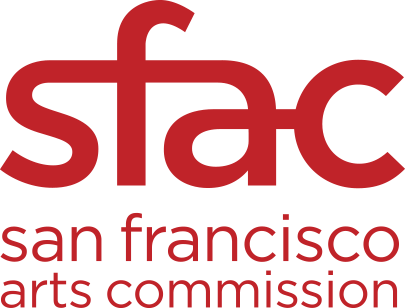Public Records Requests
The San Francisco Arts Commission (SFAC) public records request process is structured in accordance with the SF Sunshine Ordinance (Chapter 67 of the San Francisco Administrative Code) and the California Public Records Act (California Govt. Code § 7920 et seq).
Please be mindful that all correspondence and documents submitted to the San Francisco Arts Commission are public records and, as such, are subject to the Sunshine Ordinance and can be requested by the public. If this happens, personal identifying information such as personal emails and phone numbers will be redacted.
Per the Sunshine Ordinance: “Government’s duty is to serve the public, reaching its decisions in full view of the public.” The Arts Commission believes strongly in the right of citizens to access information concerning the conduct of their government and is committed to conducting all activities with full transparency and openness.
How to Request Public Records
The Arts Commission has a Director of Communications and Custodian of Records whose duties include disseminating public information and receiving and responding to requests for public records.
The Arts Commission now utilizes NextRequest to receive, track and process public records requests.
Please submit new public records requests via NextRequest. (https://sanfrancisco.nextrequest.com) Requests for public records may also be emailed to ART-info@sfgov.org or by calling 415-252-2266.
Time Allowed to Respond to a Request for Public Records
The Arts Commission responds to all requests for public records as promptly as reasonably possible, and provides responsive records, if any, as soon as possible after they are available.
Per Chapter 67 of the San Francisco Administrative Code, The Arts Commission is allowed up to 10 calendar days to respond to a standard public records request. In unusual circumstances, the Arts Commission may extend its time to respond by an additional 14 calendar days. If the Arts Commission extends the time needed to respond, the department will notify the requesting party in writing within the initial 10-day response period of the reason(s) for the extension and the estimated date of response.
Immediate Disclosure Requests
The purpose of the immediate disclosure request is to expedite the City’s response to a “simple, routine, or otherwise readily answerable request.” The Sunshine Ordinance specifies that for more extensive or demanding requests, the maximum deadlines for responding to a request are appropriate. Admin. Code § 67.25(a).
These requests for expedited handling of requests for public records must include the words "Immediate Disclosure Request" across the top of the request and on either the envelope, subject line, or cover sheet in or with which the request is submitted to the Custodian of Public Records. Generally, the Arts Commission will respond to an immediate disclosure request by the close of the next business day after the request is received. The Arts Commission may extend the time to respond to an Immediate Disclosure request by an additional 14 calendar days for the same reasons, and following the same procedure, described above.
Chapter 67 of the San Francisco Administrative Code Government's duty is to serve the public, reaching its decisions in full view of the public. Commissions, boards, councils and other agencies of the City and County exist to conduct the people’s business. This ordinance assures that deliberations are conducted before the people and that City operations are open to the people’s review. For more information on your rights under the Sunshine Ordinance or to report a violation of the ordinance, contact the Sunshine Ordinance Task Force or the City Attorney's Office.
Public Records That Are Subject to Disclosure
Some records in the possession of the Arts Commission are exempt from public disclosure under federal, state and/or local laws. Examples of records the Arts Commission is prohibited from disclosing or may decline to disclose include: personnel, medical or similar files the disclosure of which would constitute an unwarranted invasion of personal privacy; privileged attorney-client communications between the Arts Commission and lawyers for the City; and proprietary financial information submitted to the Arts Commission in response to a request for proposals prior to award of a contract. If a responsive record contains both exempt and non-exempt information, the Arts Commission will redact the exempt material and make the remainder of the record available to the requesting party.


